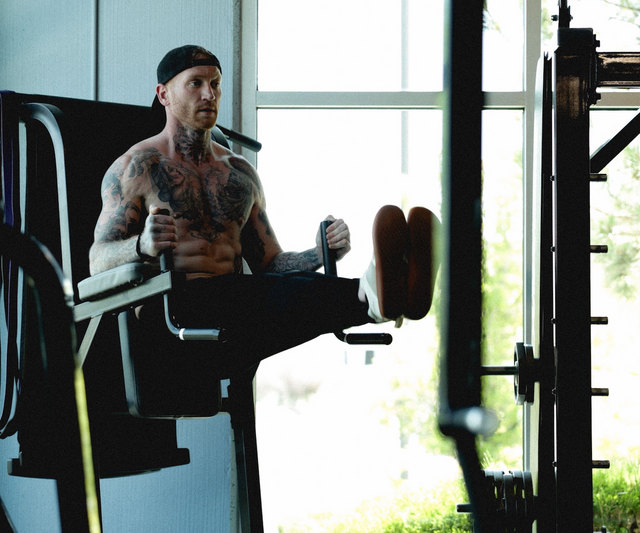In the world of muscle growth and performance enhancement, two supplements stand out: protein and creatine. Both are widely acclaimed for their ability to boost muscle strength and size, but which one truly reigns supreme? This article dives deep into the ultimate showdown between protein vs creatine, uncovering the truth behind their effectiveness and helping you make an informed decision on which one is right for you.
Protein, the building block of muscle, has long been revered for its role in muscle repair and growth. It provides the necessary amino acids to support muscle recovery and stimulate protein synthesis. On the other hand, creatine is a naturally occurring compound that fuels energy production, allowing for increased strength and power during intense workouts. It has been shown to enhance muscle size and improve performance in various athletic activities.
But which one is more effective? Should you prioritize protein or creatine in your muscle-building regimen? Join us as we explore the science behind these supplements, decipher their benefits, and finally answer the ultimate question: protein or creatine – which reigns supreme for muscle growth?
The Role of Protein in Muscle Growth
Protein plays a crucial role in muscle growth, acting as the primary building block for muscle fibers. When you engage in resistance training or intense physical activity, microtears occur in your muscle tissues. It’s during the recovery phase that protein steps in—facilitating the repair, rebuilding, and strengthening of those muscles.
The amino acids derived from dietary protein are essential for muscle protein synthesis (MPS), the physiological process where the body creates new muscle proteins. This process is critical for increasing both muscle mass and strength (Phillips, 2016). Whether you're a competitive athlete or someone looking to improve their physique, optimizing protein intake is key to driving muscle growth and overall athletic performance.
Protein Prevents Muscle Breakdown
In addition to building muscle, protein also helps prevent muscle breakdown—a common risk during calorie restriction or intense endurance training. Without adequate protein, the body may catabolize muscle tissue for energy, hindering strength and physique goals. A high-protein diet has been shown to reduce muscle loss during weight loss phases (Pasiakos et al., 2013).
This is especially vital for athletes, bodybuilders, and individuals aiming for a lean body composition while preserving muscle and improving performance.
Timing Matters: Protein and the Anabolic Window
The timing of protein intake can significantly influence muscle growth outcomes. Consuming protein shortly after a workout—commonly known as the anabolic window—can accelerate muscle recovery and hypertrophy. Experts often recommend ingesting 20–40 grams of high-quality protein within 30 minutes to 2 hours post-exercise to optimize muscle repair (Schoenfeld & Aragon, 2013).
Understanding this window and planning meals or supplementation accordingly allows individuals to maximize the anabolic effects of resistance training.
The Benefits of Protein Supplementation
1. Convenience
Protein supplements offer unparalleled convenience, especially for those with high protein requirements or busy schedules. It can be difficult to meet daily protein goals from whole foods alone—especially when traveling or on the go. Supplements like protein powders, shakes, and bars help bridge this gap by providing portable, fast-digesting protein options.
This is particularly helpful for working professionals, athletes, or anyone with time constraints, offering a practical way to stay on track with nutritional goals.
2. Enhances Recovery and Performance
Protein supplementation also plays a major role in enhancing recovery. Research shows that post-workout protein intake can reduce muscle soreness and speed up recovery (Kerksick et al., 2008). This leads to better performance in subsequent training sessions, allowing individuals to train harder and more frequently.
Additionally, protein supplementation supports favorable body composition—promoting fat loss while maintaining lean muscle mass, which is essential for both aesthetics and performance.
3. Builds Muscle
Supplementing with protein, especially in conjunction with resistance training, has been shown to lead to greater muscle hypertrophy compared to training alone (Morton et al., 2018). Protein supplements supply the necessary amino acids to stimulate MPS and enhance results.
This makes supplementation especially useful for:
-
Beginners starting strength training
-
Individuals breaking through plateaus
-
Bodybuilders during bulking or cutting cycles
Different Types of Protein Supplements
Whey Protein
Whey protein is one of the most widely used supplements due to its high biological value and complete amino acid profile. Derived during the cheese-making process, whey is rapidly absorbed, making it ideal for post-workout recovery and muscle growth.
There are three main forms of whey:
-
Whey Concentrate: Contains 70–80% protein, with small amounts of fat and lactose.
-
Whey Isolate (WPI): Contains 90%+ protein, with minimal lactose, fat, or carbs.
-
Whey Hydrolysate: Predigested for even faster absorption and reduced allergenicity.
Why Whey Isolate Is Superior
Whey Protein Isolate (WPI) is often considered superior to whey concentrate, particularly for those seeking high-quality protein with fewer fillers. Here's why:
-
Higher protein content (90%+)
-
Lower in fats, carbs, and lactose
-
Easier digestion for lactose-sensitive individuals
-
Faster absorption post-exercise
-
Lean and low-calorie, ideal for fat loss or muscle gain goals
According to research, WPI is more effective for rapid recovery and muscle tissue repair after intense training (Cribb & Hayes, 2006).
Plant-Based Protein Supplements
Plant-based proteins have grown in popularity among vegans, vegetarians, and those with dairy sensitivities. Common sources include:
-
Pea protein
-
Rice protein
-
Hemp protein
While some plant proteins have a lower biological value compared to animal-based options, blending sources can provide a complete amino acid profile. Many brands now combine different plant proteins to ensure adequate levels of essential amino acids, making them effective for muscle building and recovery (Mariotti & Gardner, 2019).
Protein is essential for muscle growth, repair, and recovery, and plays a key role in achieving your physique and performance goals. Whether you're consuming it through whole foods or supplements, making informed choices about type, timing, and quality of protein intake will significantly influence your progress.
The Science Behind Creatine and Muscle Growth
Creatine is a naturally occurring compound found in small amounts in certain foods like red meat and fish, and synthesized in the human body from amino acids such as arginine, glycine, and methionine. Once produced or ingested, it is stored in the muscles as phosphocreatine, where it plays a critical role in the production of adenosine triphosphate (ATP)—the body’s primary energy currency.
During high-intensity, short-duration exercise (e.g., sprinting, heavy lifting), ATP stores deplete rapidly. Creatine acts as a buffer, replenishing ATP stores and enabling sustained energy output, which is why it is so closely associated with improved performance in resistance training and explosive movements (Kreider et al., 2017).
How Creatine Stimulates Muscle Growth
Creatine supplementation doesn’t build muscle directly like protein does, but it increases the capacity to train harder and longer. This, in turn, creates a stronger stimulus for muscle hypertrophy. Additionally, creatine causes increased water retention within muscle cells, leading to what’s called “muscle volumization”—a visual swelling effect that contributes to muscle fullness and improved strength output (Greenwood et al., 2003).
Creatine Reduces Muscle Damage and Speeds Recovery
Research also suggests creatine helps reduce exercise-induced muscle damage and inflammation, leading to faster recovery and reduced soreness after intense training sessions (Cooke et al., 2009). This is particularly advantageous for athletes who train multiple times per week or follow progressive overload programming.
The Benefits of Creatine Supplementation
1. Increased Strength and Power Output
Creatine consistently ranks as one of the most effective ergogenic aids for increasing strength, muscle mass, and anaerobic capacity. Numerous studies confirm that individuals who supplement with creatine can perform more reps, lift heavier weights, and experience greater training volume over time (Rawson & Volek, 2003).
2. Improved Athletic Performance
Beyond bodybuilding, creatine also enhances performance in sports requiring short, explosive bursts of energy, such as sprinting, football, wrestling, and basketball. It supports better recovery between sets, delays fatigue, and improves overall training intensity and work capacity (Buford et al., 2007).
3. Supports Brain Health and Cognitive Performance
Emerging evidence suggests creatine may support cognitive function and brain health, especially during periods of mental fatigue, stress, or sleep deprivation. Some studies show it can improve working memory, intelligence tasks, and reaction time, especially in populations with low baseline creatine stores such as vegetarians (Avgerinos et al., 2018).
Different Types of Creatine Supplements
Creatine Monohydrate
The most researched and widely used form of creatine is creatine monohydrate. It is safe, effective, and cost-efficient, with a large body of scientific literature supporting its use for increased muscle mass, performance, and recovery. It’s usually taken in powder form and dissolves well in warm liquids.
Recommended Product: Swolverine® Creatine Monohydrate
Buffered Creatine (Kre-Alkalyn)
Buffered creatine, marketed under names like Kre-Alkalyn, is claimed to offer improved pH stability and reduced conversion to creatinine, which could result in better absorption and fewer side effects such as bloating or cramping. Although some users report enhanced endurance and strength, the scientific evidence is still mixed on whether it outperforms creatine monohydrate (Jagim et al., 2012).
Recommended Product: Swolverine® Kre-Alkalyn Creatine
Protein vs. Creatine: A Comparison of Their Effectiveness
Different Mechanisms, Complementary Roles
It’s important to note that protein and creatine are not competitors—they serve very different functions and are often most effective when used together:
-
Protein provides essential amino acids for muscle repair and growth.
-
Creatine enhances cellular energy availability to fuel high-intensity training sessions.
Which One Should You Prioritize?
-
If your goal is muscle recovery, lean tissue repair, and maintenance: Protein is essential and should be prioritized.
-
If your goal is performance, strength, and work capacity: Creatine will help you push harder and recover faster.
Combining both allows athletes to train harder (with creatine) and recover better (with protein), ultimately resulting in better performance and muscle hypertrophy.
How to Incorporate Protein and Creatine Into Your Workout Routine
Protein Supplementation Strategy
-
Daily Intake: 1.6–2.2g of protein per kg of body weight (Morton et al., 2018)
-
Timing: Consume protein within 30 minutes to 2 hours post-exercise
-
Sources: Whey protein, lean meats, eggs, legumes, or Swolverine® Whey Protein Isolate
Creatine Supplementation Protocol
-
Loading Phase: 20g per day (split into 4 servings) for 5–7 days (optional)
-
Maintenance Phase: 3–5g per day
-
Timing: Anytime, but many prefer post-workout with a carb or protein source
-
Hydration: Stay well hydrated to reduce risk of cramping and optimize absorption
Combining protein and creatine post-workout (e.g., in a smoothie or shake) can help kickstart recovery and enhance muscle-building adaptations.
Final Thoughts
Creatine is one of the most well-researched and effective supplements for building strength, increasing lean muscle mass, and enhancing athletic performance. Whether you're an elite athlete, weekend warrior, or someone simply trying to improve body composition, creatine—especially when paired with proper protein intake—can elevate your training outcomes and help you recover faster.
If you're looking to maximize results in both strength and muscle growth, creatine and protein are a power duo worth incorporating into your fitness routine.
Conclusion: Pairing Creatine And Protein
In conclusion, both protein and creatine play vital roles in muscle growth and performance enhancement, each providing unique benefits that can complement each other. Protein is essential for muscle repair, recovery, and growth, making it indispensable for anyone looking to increase muscle mass. Creatine, on the other hand, enhances energy production, allowing for improved performance during high-intensity workouts, which can ultimately lead to greater muscle gains over time.
To achieve optimal results, individuals should focus on a balanced approach that includes sufficient protein intake distributed throughout the day and strategic creatine supplementation. Understanding your personal fitness goals and training regimen will help determine how to prioritize and incorporate these supplements into your routine effectively.
Ultimately, the key to successful muscle growth lies in consistency, proper nutrition, and a well-structured training program. By finding the right balance of protein and creatine, you can maximize your muscle growth potential and enhance your overall athletic performance, paving the way for achieving your fitness aspirations. Whether you choose to emphasize one supplement over the other or incorporate both, remember that individual responses may vary, and it is essential to tailor your approach to your specific needs and goals.







